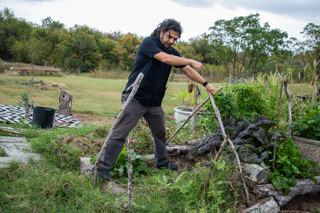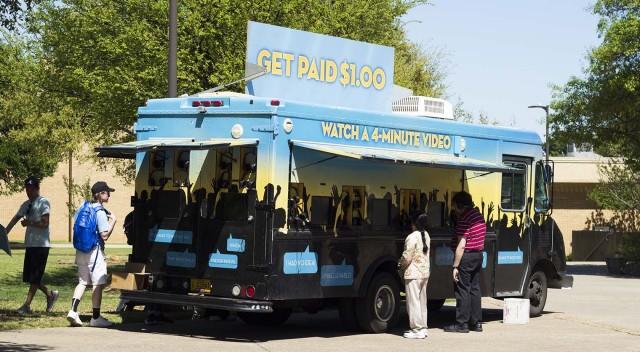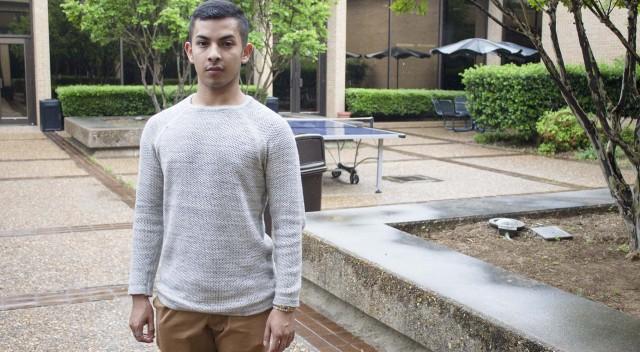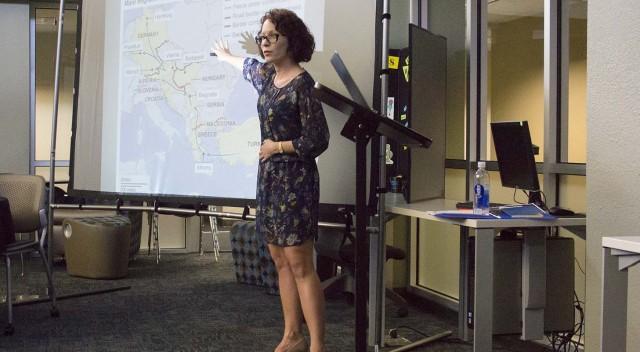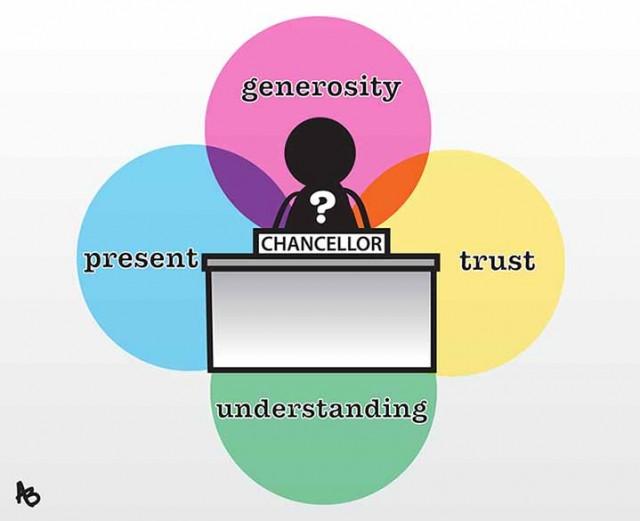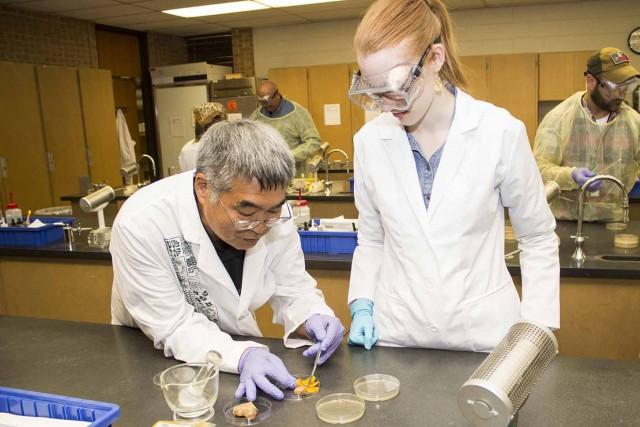By Gerrit Goodwin/ ne news editor
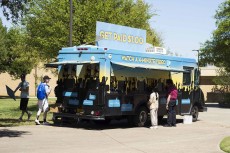
Bogdan Sierra Miranda/The Collegian
Activists from Farm Animal Rights Movement recently visited NE Campus to raise student awareness regarding the treatment of livestock in the U.S.
FARM members incentivized students to challenge their stance on consuming meat products by offering $1 to anyone who would watch a short video and take a pamphlet containing a variety of vegan meal options.
Becki Brosky, a tour operator for the movement, said she has traveled to campuses all over the U.S., and so far over 320,000 people have taken the time to watch the short four-minute video depicting the harsh realities of the meat industry.
“It’s something I am passionate about because it doesn’t just benefit animals,” she said. “It’s better for our own health and the environment. I think more people would turn to less meat-based diets if they really knew what was going on.”
Brosky said she has been vegan for the better part of two years, but the hardest part wasn’t giving up meat. It was just getting started.
“It’s important to start taking steps that you are comfortable with, like giving up meat for one or two days a week and then gradually moving to three or four,” she said. “We aren’t asking people to make a sudden drastic change in their lives, just small ones.”
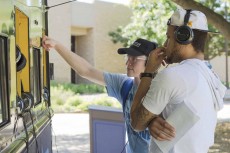
Bogdan Sierra Miranda/The Collegian
Brosky said at first she was apprehensive to change, but with the help of vegan support groups, she made the transition more easily.
“I never miss a burger anymore because it’s become so second nature to me that I don’t even think about it anymore,” she said. “The longer you go without something, the easier it becomes.”
Jordan McCann, another FARM tour operator, said he hasn’t eaten meat in four years.
“I’ve always loved animals and never thought too hard about what my food goes through before it reaches me,” he said. “One day I decided I would do the research, and what I saw helped me come to the conclusion that I wanted to change.”
McCann said the biggest opponents to widespread change are misinformation, lack of alternatives and a government-subsidized meat and dairy industry.
“The industry is based on supply and demand, and if we limit the demand, we can cut the supply,” he said. “I’ve seen statistics that show 12 percent of people are currently vegan, which means the tide is already shifting and demand is going down.”
More restaurants and fast-food locations should cater to vegan and vegetarian lifestyles to help incite change, McCann said.
“Meat and dairy products are unhealthy,” he said. “Eating animal products has been proven to be carcinogenic and increase the risk of diabetes and heart disease.”
NE student Vicki Weikleenget said she came for the free dollar and to see a video that she thought would be about farming.
“It’s a video on why we should all be vegan and not a video about the farming industry,” she said. “I grew up around farms and can tell you that there are a lot of good places that treat animals well.”
Weikleenget said she loves fried chicken and steaks too much for a video to make any impact on her dietary decisions.
“God put animals on the earth so that we could eat them,” she said. “If anything, I’d like to see a change in the industries’ practices. It’s inhumane, and those people deserve to be shot.”
McCann disagreed with Weikleenget’s point of view and said while he is religious and went to Catholic school, he doesn’t think God put animals on earth just to eat.
“What I took away from my faith is that you need to show mercy and treat others how you’d want to be treated,” he said. “If we needed meat biologically to survive, then I wouldn’t be out here, but we don’t.
“The biggest danger to change is thinking that things have always been done this way, so we don’t need to do anything about it.”
















